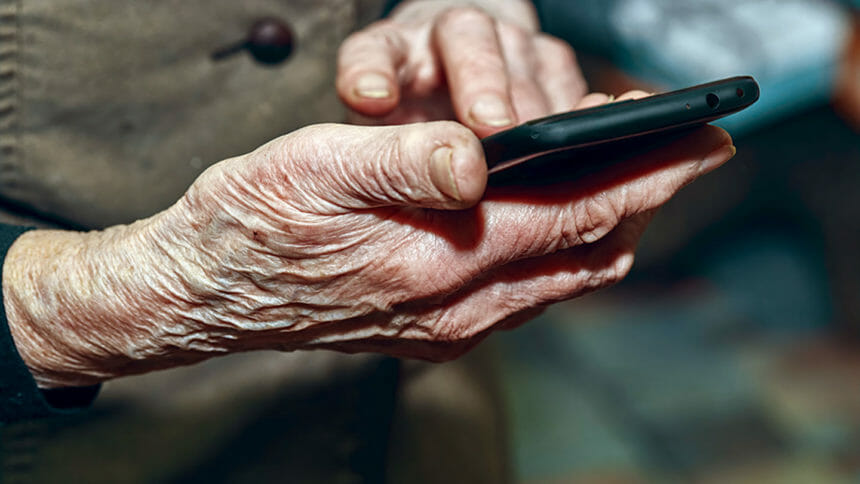
Older adults living with dementia or mild cognitive disorders were able to improve their memory by using a personal assistant application on their smartphones to receive reminders about upcoming events and activities, revealed a study by researchers at the University of Missouri and Baylor University.
Investigators asked study participants to track how they performed with various memory tasks for four weeks, after training them on how to use the smartphone app, Cortana, which responds to older adults speaking or typing a reminder message and the desired time for the message.
They found that the older adults who used the personal assistants showed improvement in their ability to keep track of and remember tasks.
Participants using the phone reminders saw more improvement in their symptoms than those using more traditional strategies such as listing tasks and reminders and speaking them three times out loud — a tactic previous research has shown often works to help memory retention. Older adults using Cortana were also able to recall tasks later in the day.
“Some people may have had doubts about if we could train these older adults with cognitive impairment to use the technology or if they would find it helpful, and the preliminary evidence suggests it helped them with their memory and improved their quality of life,” said study co-author Andrew Kiselica, Ph.D., an assistant professor in the MU School of Health Professions.
Thanks to the pandemic, older adults are increasingly turning to technology to stay connected. Kiselica said he is interested in evaluating if memory can be improved among this population through technology-based interventions.
“Given that smart technology can reduce prospective memory difficulties — as well as reduce social isolation, detect falls, monitor heart rhythms, and promote independence — it is time to discard stereotypes and train healthy older adults, persons with mild [Alzheimer’s disease and related dementias] and care partners how to optimally use smartphones to support functioning,” said Kiselica.





